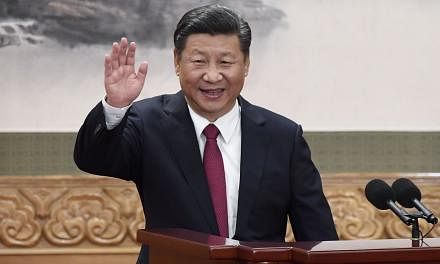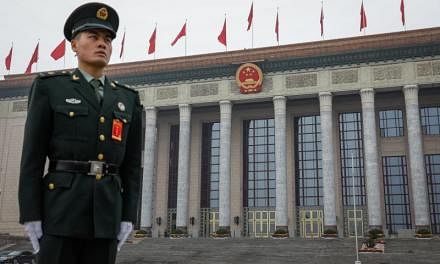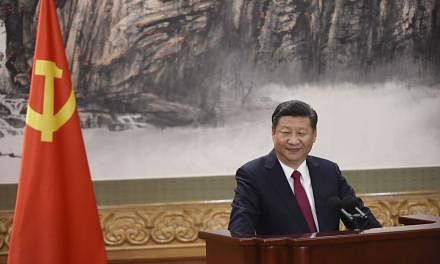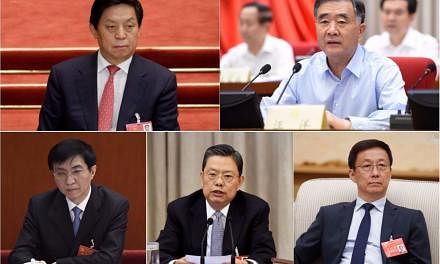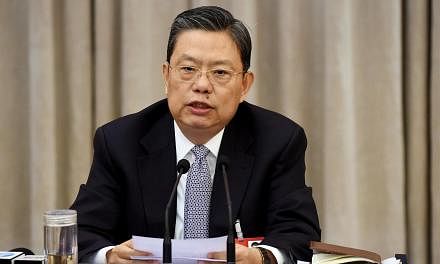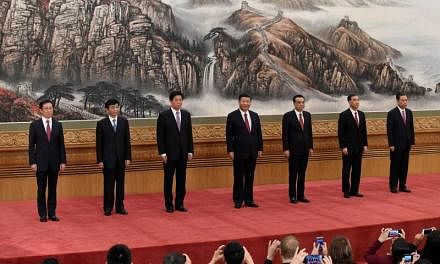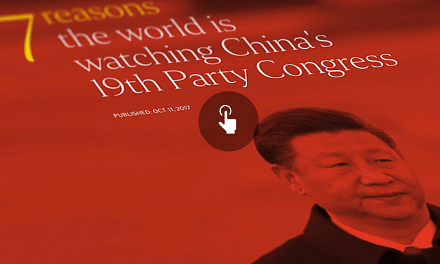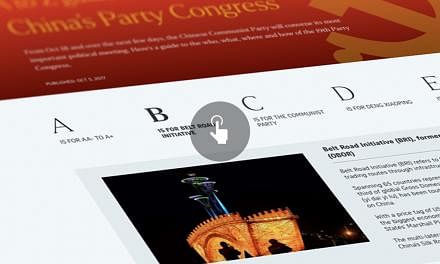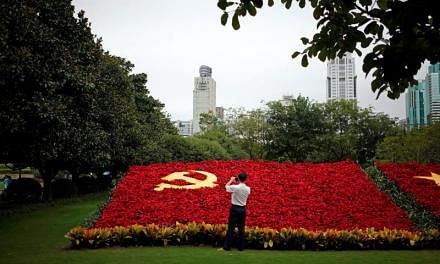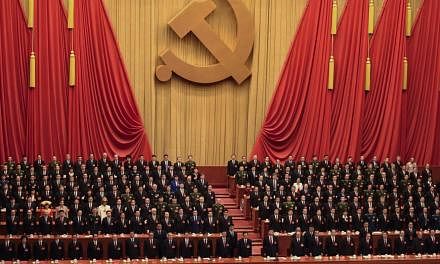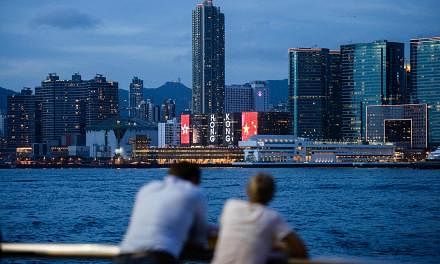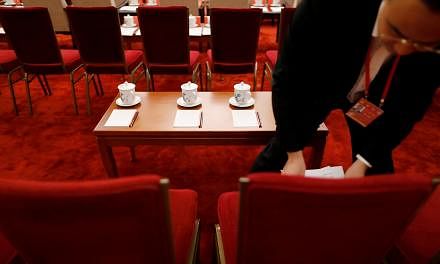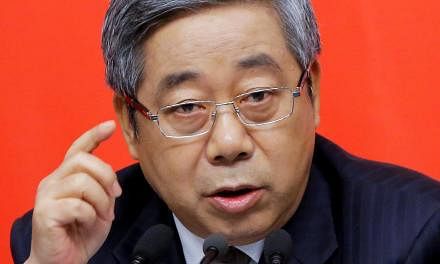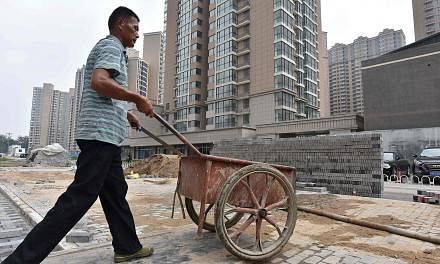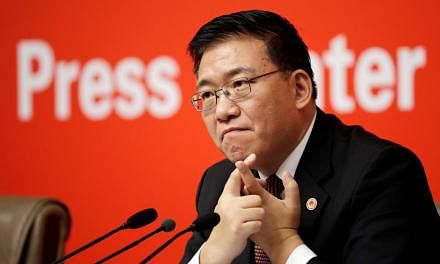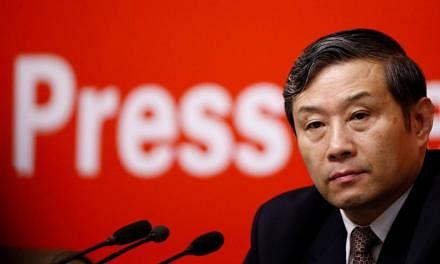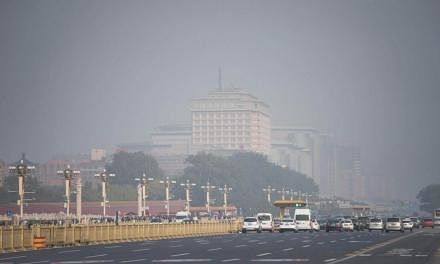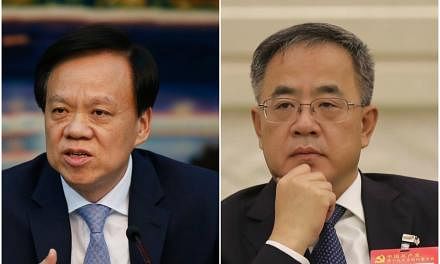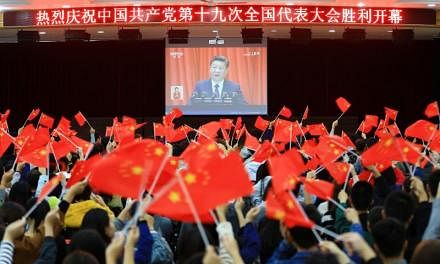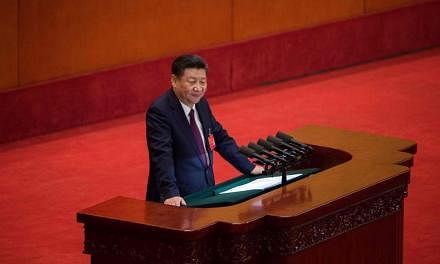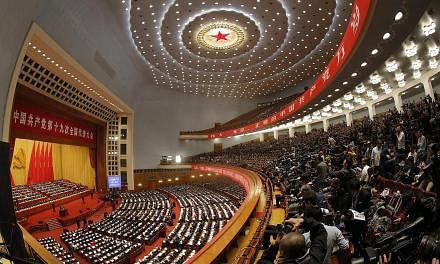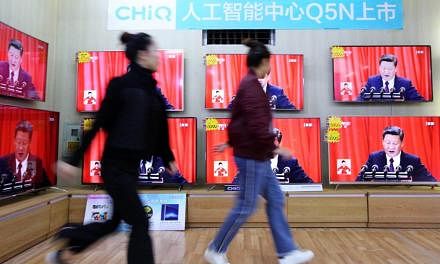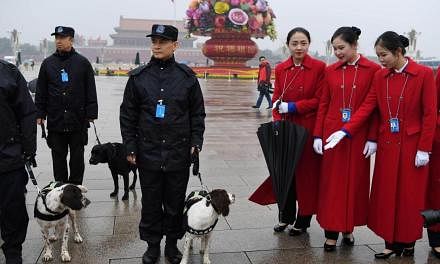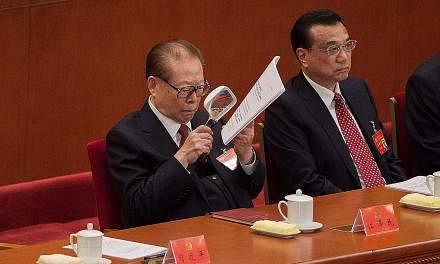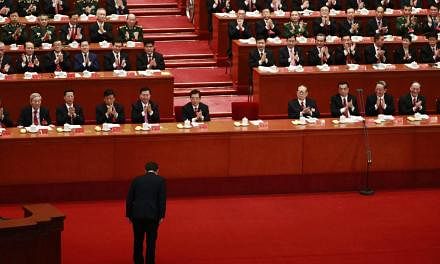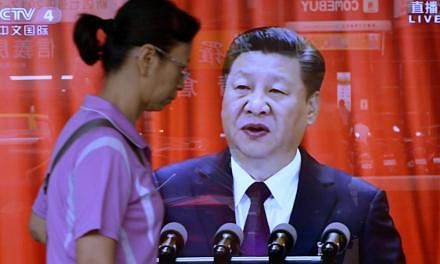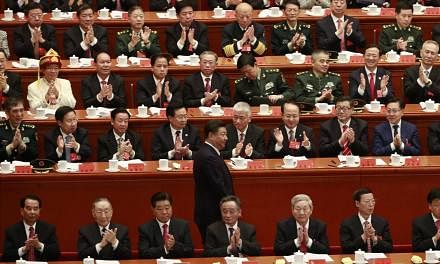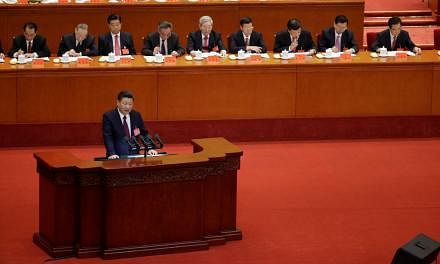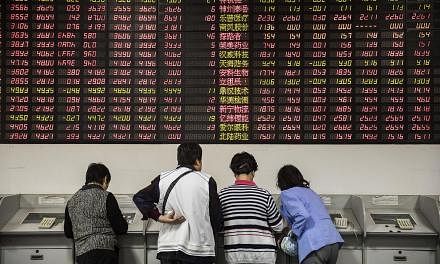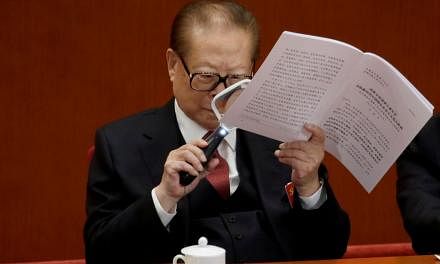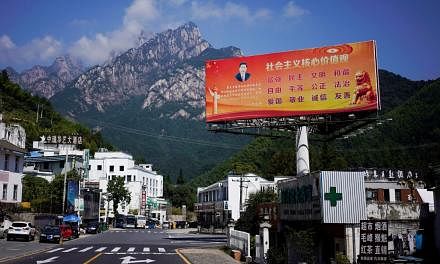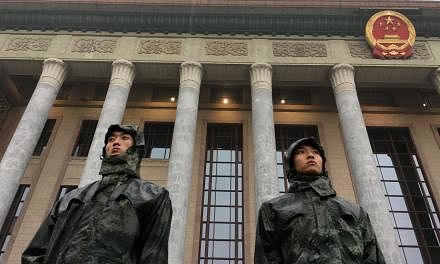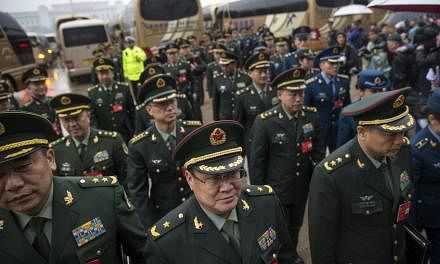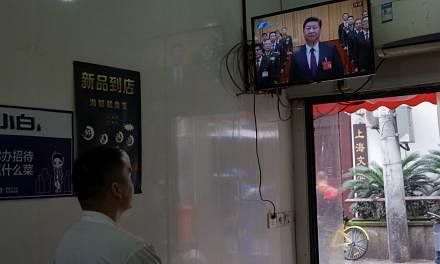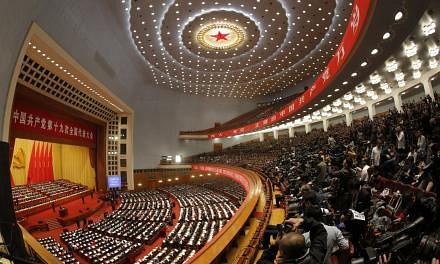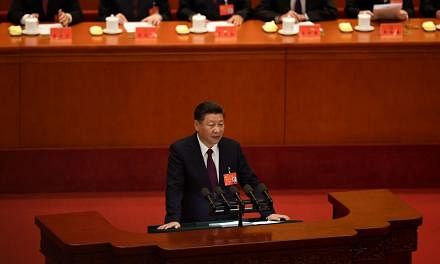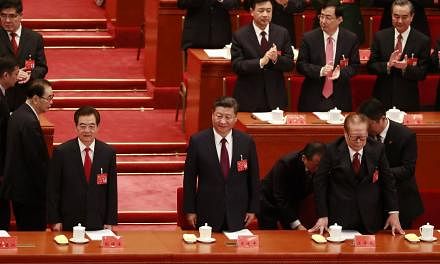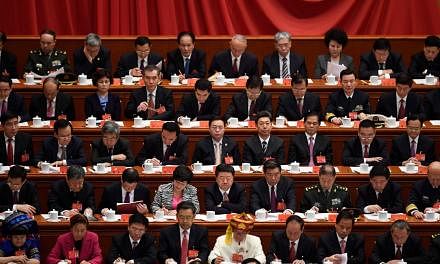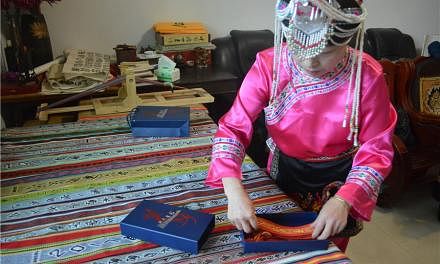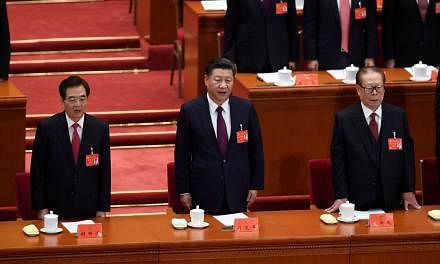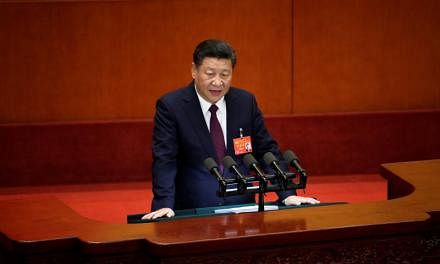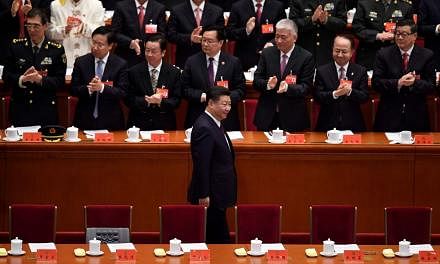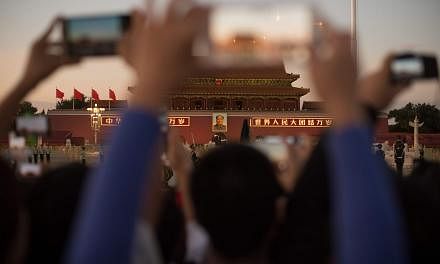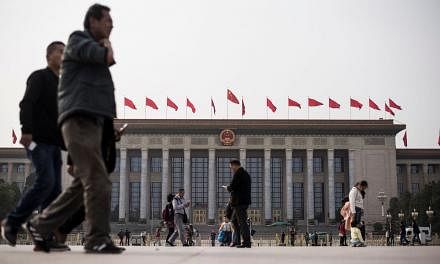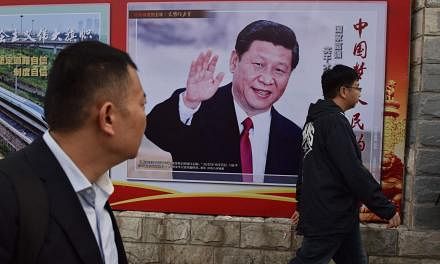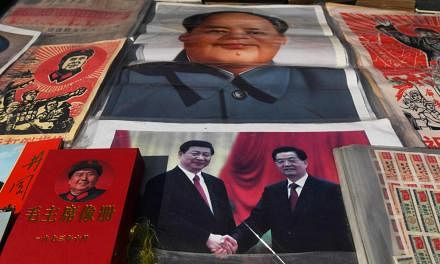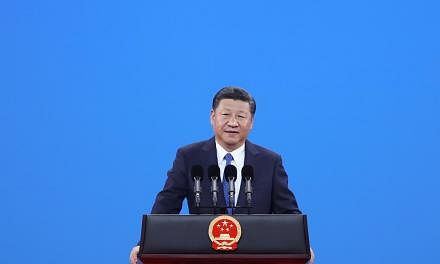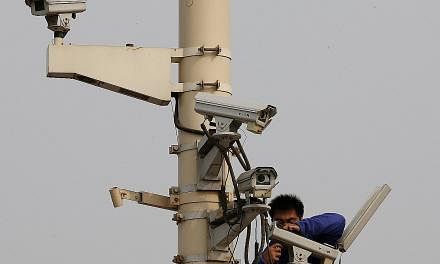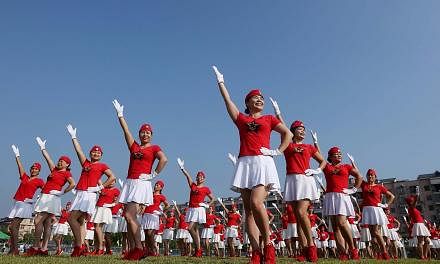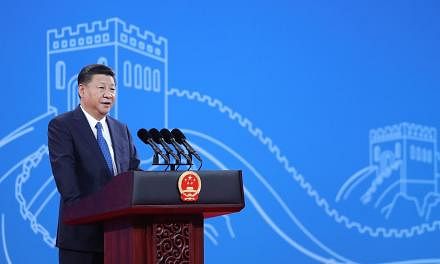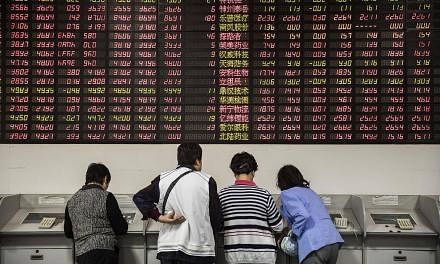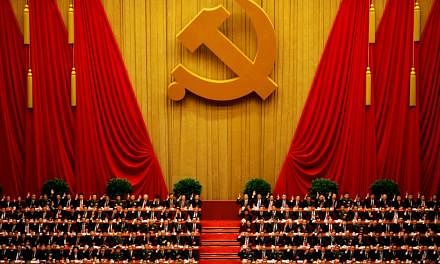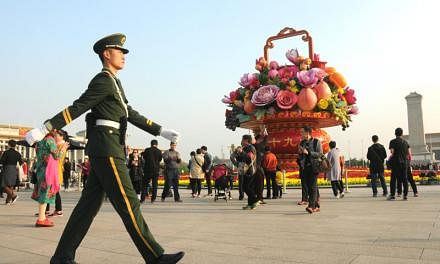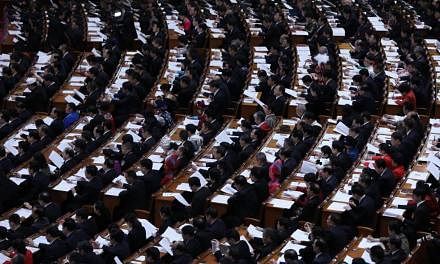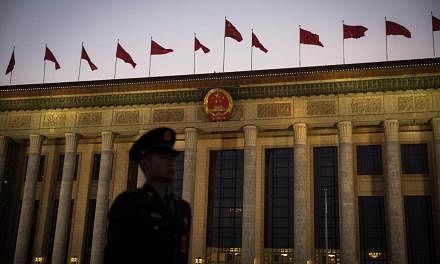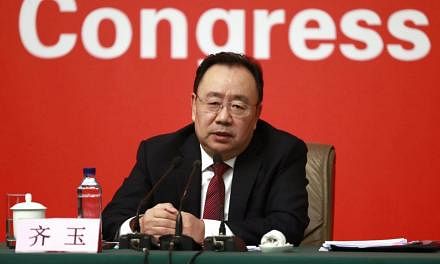By having his political thoughts written into the Chinese Communist Party's (CCP) charter, President Xi Jinping has gained a lot more power, and this will allow him to get the party into line.
However, the fact that he apparently did not get his way completely shows some resistance, which is leading him to make compromises, say analysts.
Yesterday, at the closing of the five-yearly national congress of the CCP, some 2,300 delegates unanimously passed amendments to the party charter, the most important of which was the inclusion of Mr Xi's political thoughts.
His "Xi Jinping Thought on Socialism with Chinese Characteristics for a New Era" was added to the preamble that describes the party's guiding ideology, including Marxism-Leninism, Mao Zedong Thought, Deng Xiaoping Theory, the important thought of the Three Represents and the Scientific Outlook on Development.
This formulation carries his name unlike those of his two immediate predecessors - Mr Jiang Zemin, whose contribution is the Three Represents, and Mr Hu Jintao, whose guiding principle is the Scientific Outlook on Development. This places Mr Xi ahead of them and Deng, and just behind Mao. In the CCP lexicon, Thought is ahead of Theory in importance. However, it still fell short of what some analysts believe Mr Xi would have liked it to be - Xi Jinping Thought, placing him alongside Mao.
"The formulation is most probably the result of a compromise, which is why it gets a bit unwieldy," said Professor Steve Tsang, director of the China Institute at the School of Oriental and African Studies in London. "Xi would almost certainly have preferred simply 'Xi Jinping Thought', but others wanted to avoid this," he added.

Hong Kong-based analyst Willy Lam said there was opposition because "it sounded too grandiose" as people would then equate it with Mao's thought.
The concept of socialism with Chinese characteristics is not new. It was first put forth by Deng in 1984 to justify the opening up and reform that began in 1978, and allowed the market to play a role in communist China's planned economy.
The addition of "new era" to the concept, said Prof Tsang, implies domestically that Mr Xi is asserting his authority beyond what his two predecessors had managed to do.
Mr Xi is "making himself the third path-breaking leader", after Mao, who founded the People's Republic of China, and Deng, who started the reform period. "Now, Xi is taking China to the promised land in its own chosen path of 'Socialism with Chinese Characteristics'," added Prof Tsang.
Externally, "it marks the end of the Dengist strategy of 'hiding brightness (capabilities) and biding one's time' ". "Xi is working on the basis that China has risen and expects to play a leading role in global affairs," said Prof Tsang.
For some, the jury is still out on how effectively Mr Xi will use the power that he has amassed.
While Mr Xi has shown prowess in vanquishing his rivals, his record on the economy over the past five years was mixed, with the economy not having performed so well, said Chinese historian Zhang Lifan. Moreover, his economic policy has been confusing, stating that the market should play a decisive role in allocating resources, but also that state-owned firms should be expanded. "We will have to see his ability to govern the country over the next five years," he said.
Analysts believe Mr Xi is unlikely to appoint successors-in-waiting to the top decision-making body, the Politburo Standing Committee, today, as is customary for leaders in the middle of a two-term, 10-year tenure. This is because he is angling for a third term himself, they say.
However, he is expected to include leaders who are not his proteges such as Mr Wang Yang of the Communist Youth League faction and Mr Han Zheng, who is linked to the Shanghai faction.
This "will show that Xi is sending a clear message that he is inclusive and the leader of the CCP as a whole", said Prof Tsang.


